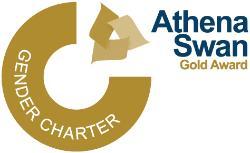ECR group
Published: 19 October 2022
Colin Shore of the SHW Athena Swan ECR group explains the current structure of the group, and the four subgroups recently established to help ensure that the issues of greatest relevance to early career researchers are addressed and group goals are met
Colin Shore of the SHW Athena Swan ECR group explains the current structure of the group, and the four subgroups recently established to help ensure that the issues of greatest relevance to early career researchers are addressed and the group goals are met.

The Athena Swan ECR working group has a mission statement of addressing issues affecting inequity in representation, progression, and success of all early career researchers within the School of Health and Wellbeing.
ECRs are a well-represented cohort within the school and are an integral part of any thriving university, and we should work hard to identify opportunities to optimise their development.
The natural evolution of the ECR working group has seen a burgeoning list of potential issues to address, resulting in a reframing of the underlying structure of the group to achieve our goals. Subgroups have been created to help manage the workload. These groups are:
- Training
- Career progression and professional development
- Teaching
- Communication and social activities
The primary aim of the training subgroup is to ensure our ECR cohort are provided with the training opportunities that allow them to build capacity in their role and to support their wider learning beyond what is contractually obligated. Although natural interdependencies exist with the professional development and teaching subgroups the distinction lies with our focus on training course development, delivery, and evaluation.
The primary aim of the career progression and professional development subgroup is to establish, develop and implement ECR specific development opportunities to improve insights into career planning and progression. For example, and in conjunction with the training subgroup, this might be achieved through grant-writing groups targeted at ECRs new to the funding process, to support them throughout the process and increase confidence and insight into writing successful grants. The group will also focus on developing career development workshops, networking and collaboration opportunities, and Q&A sessions with senior university staff (e.g. VP Research). Working closely with the promotions working group, Maternity/paternity and staff promotions working groups and MVLS HR, our work will also look at supporting ECRs to facilitate/reduce barriers to promotions.
The primary aim of the teaching subgroup is to establish a suitable teaching information resource to improve matching between individual ECRs and teaching opportunities. We have created a SHW teaching hub channel within the SHW Team. This is where staff and students can post teaching opportunities (wanted and opportunities offered) and those who seek teaching experience can add their details to our excel spreadsheet.
The primary aim of the communication and social activities subgroup is to shine a light and spread the word on the above subgroups. Improving communication channels and visibility of opportunities, ECR specific groups, career development (to name just a few) is an integral key to the success of all early career researchers. Additionally, the groups set to try and readdress the work-life balance by bringing people together through social events. Where we are very aware this aspect of work life might have gone missing over the last few years, thanks to COVID and its impact on working patterns.
If you have any questions, suggestions, or ideas, please do get in touch with the Co-chairs of the group, Dr Paul McCrorie (Paul.McCrorie@glasgow.ac.uk ) and Dr Michael Fleming (Michael.Fleming@glasgow.ac.uk).
Colin Shore
on behalf of the SHW Athena Swan ECR group
First published: 19 October 2022


